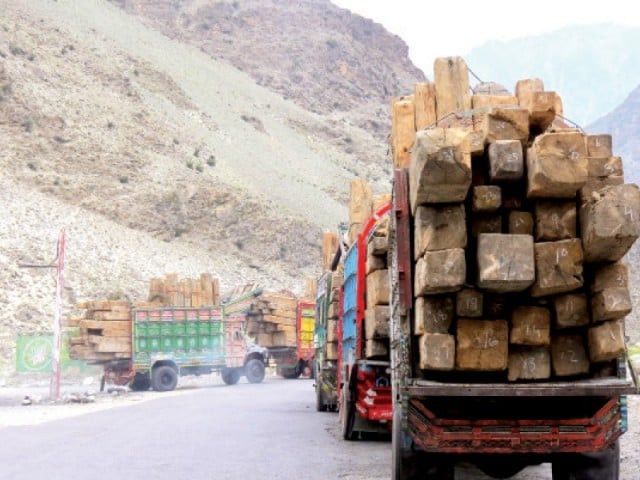Cutting of chinar tree on rise in Abbottabad
Replacing majestic trees with poplar causing respiratory problems for citizens

Abbottabad, once known as the "valley of chinars", has been badly damaged by the ruthless cutting of this majestic variety of trees and its replacement with poplar has created issues for the general public causing respiratory problems including asthma.
Chinar or maple trees were being replaced by poplar trees without taking into account the respiratory diseases it was causing for the masses.
The white fluff, originating from poplar trees above the age of four years, was causing severe stress and leading to respiratory problems including asthma.
The pollution caused by the poplar and some other wild trees is not an encouraging sight for potential tourists who show up during summers. People are forced to use face masks and are at a loss as to where they should turn for relief.
Ayub Teaching Hospital Registrar Dr Daud Iqbal said asthma, which is a chronic inflammatory disorder of the airways, involves wheezing, breathlessness, chest tightness and coughing, particularly at night or in the early morning.
He said that fluff was causing problems like asthma, fever and lung diseases. He asked people to use masks during this season and remain indoors. He further said that with the beginning of spring, the number of pollen allergy patients has witnessed a significant increase at the city hospitals.
Environmentalists were of the view that pollen generated by poplar trees has created a great environmental hazard in Abbottabad besides causing asthma and other allergy-related problems. They asked the authorities concerned to replace poplar trees with other eco-friendly trees such as maple etc.
Water shortages
Farmers are worried as dry weather has created drought, which may damage the standing crops, fruit orchards all over Hazara division.
There is a water shortage for irrigation and clean drinking water. During the last month, no major rainfall has been reported in the Hazara division and this is likely to prevail in the coming days. People from surrounding hilly areas of all eight districts are forced to bring water from distant areas as most natural springs have dried.
The situation is worse in some hilly areas of districts Haripur, Abbottabad, Mansehra and Kohistan. If the condition of drought persists then locally produced fruits and wheat would be badly damaged. Wheat crop farmers from Haripur to Battagram districts are worried as their standing crops are in peril, while fruit orchards are also suffering because of an acute shortage of irrigation water. Farmers have also requested the ulema and people for special prayers for rain.
In the city of Mansehra, most people are using water tankers for their domestic needs since the availability of drinking water from the municipal committee is limited and many tube wells are out of order.
The dry weather also affects the health of the people and many seasonal diseases including cough, sour throat and flue are becoming common in the area.
Additional input from APP
Published in The Express Tribune, April 11th, 2022.



















COMMENTS
Comments are moderated and generally will be posted if they are on-topic and not abusive.
For more information, please see our Comments FAQ